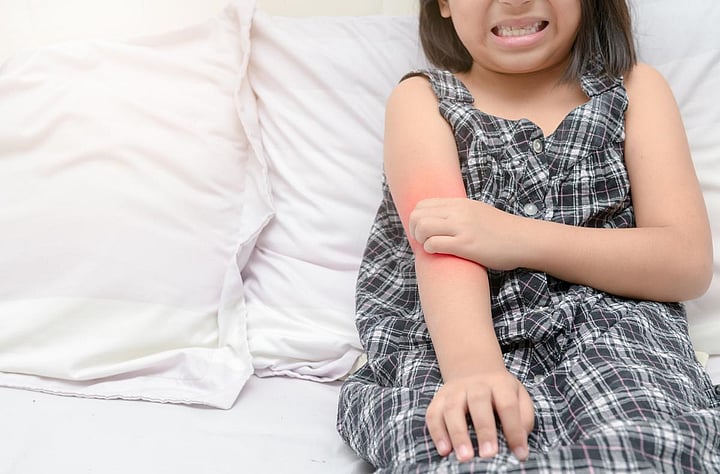幼少期のストレスの多いライフイベントがアトピー性皮膚炎の活動性と関連
新しい学校に通い始める、きょうだいが生まれるなど、一般的なストレスで関連強まる
米カリフォルニア大学サンフランシスコ校のKatrina Abuabara氏らは、Avon Longitudinal Study of Parents and Childrenから1~8.5歳の小児1万3,972人を対象とした縦断的コホート研究を実施し、幼少期のストレスの多いライフイベントがADの活動性と重症度に与える影響について検討した。
その結果、潜在的な交絡因子で調整後、ストレスの多いライフイベントが1標準偏差増加するごとに、同時期のAD活動リスクがわずかに上昇した(オッズ比1.04)。このリスクは、中等度から重度のADおよび幼少期にわたるストレスの多いライフイベントの累積尺度においてより上昇した(オッズ比はそれぞれ1.13、1.11)。親との別離や虐待といった幼少期の深刻な負のライフイベントよりも、新しい学校に通い始める、きょうだいが生まれるといった一般的なストレスで関連性が強まった。
著者らは、「今回の結果は、親や医療従事者がストレスの多いライフイベントの時期にAD増悪の可能性を予測し、予防的に保湿や治療を行える可能性を示唆している。さらに、複数のストレス軽減方法がAD症状を改善することが示されており、ストレスの多いライフイベントを経験する患者にとって有用である可能性がある」と述べている。
なお1人の著者が、製薬企業および化粧品企業との利益相反(COI)に関する情報を明らかにしている。
Journal of Investigative Dermatology


Early Childhood Stressful Life Events Linked to Increased Eczema Activity
Association driven by common stressful life events such as starting new school, having new baby sibling
WEDNESDAY, Feb. 5, 2025 (HealthDay News) -- For children with atopic dermatitis (AD), early childhood stressful life events are associated with an increased risk for disease activity, according to a study published online Jan. 28 in the Journal of Investigative Dermatology.
Katrina Abuabara, M.D., from the University of California in San Francisco, and colleagues conducted a longitudinal cohort study of 13,972 children ages 1 to 8.5 years from the Avon Longitudinal Study of Parents and Children to examine the impact of stressful life events throughout early childhood on AD activity and severity.
The researchers found that for each standard deviation increase in stressful life events, there was a small increased risk for concurrent AD activity after adjusting for potential confounders (odds ratio, 1.04), which was higher for moderate-to-severe AD and for a cumulative measure of stressful events across childhood (odds ratios, 1.13 and 1.11, respectively). Common stressful life events such as starting a new school or having a new sibling drove the association more than severe adverse childhood events such as being separated from a parent or being abused.
"These results suggest that parents and providers may anticipate and proactively moisturize or treat to prevent potential AD flares around life events," the authors write. "In addition, multiple stress-reducing modalities have been shown to improve AD symptoms and may be helpful for patients experiencing stressful life events."
One author disclosed ties to the pharmaceutical and cosmetic industries.
Journal of Investigative Dermatology


